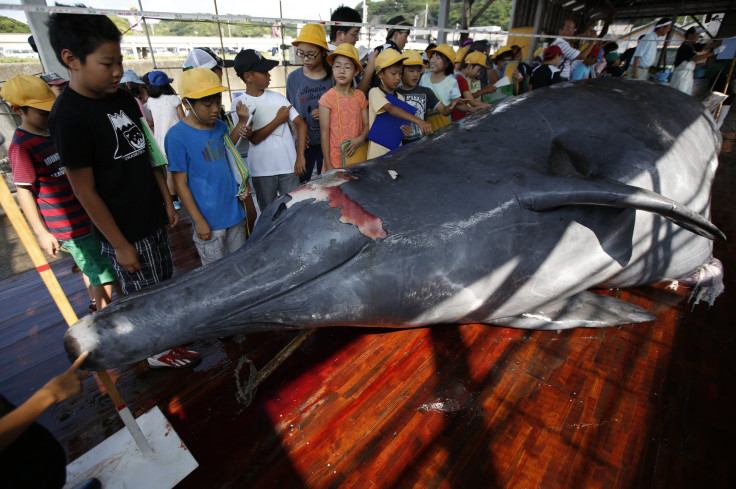Japan Plans To Restart Whaling In Antarctic In 2015 Despite Whaling Commission's Concerns

Japan is planning to restart its whale hunts in the Antarctic later this year despite the International Whaling Commission (IWC) saying that the country has not been able to justify its argument that the mammals need to be killed for research, the Associated Press (AP) reported on Saturday.
The IWC said in a report on Friday that it was not able to determine whether a lethal sampling was required for whale stock management and conservation.
Although the killing of whales was banned by the IWC in 1986, Japan has been reportedly killing the mammals under the exception of scientific research. In April, an IWC expert panel dealt with a revised Japanese Antarctic whaling plan after the International Court of Justice ruled in 2014 that the killing was not scientific.
“We have not changed any policies and our goal,” Joji Morishita, Japan’s representative to the IWC, said on Friday, according to the AP, adding that the country will respond sincerely to “scientifically backed comments” in the report, but criticized it as lacking consensus.
Under Japan’s revised proposal for the upcoming whaling season, known as Newrep-A, it plans to catch 333 minke whales a year until 2027, down to about a third of its earlier target. The move comes amid a declining demand for whale meat in the country and protests by anti-whaling groups.
"The government of Japan has already announced their plans to resume the killing of whales in 2015/2016, despite condemnation from the highest court in the world, the International Court of Justice," Sea Shepherd, an anti-whaling group, said in a statement, released in January.
While a ban on commercial whaling has been in place for nearly three decades, Japan is allowed to sell the meat it gains from its "scientific" hunts. Countries including Australia, New Zealand, Britain and the U.S. have strongly condemned the killings, noting that non-lethal scientific approach can be just as fruitful.
© Copyright IBTimes 2024. All rights reserved.






















